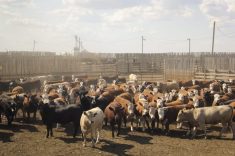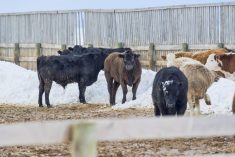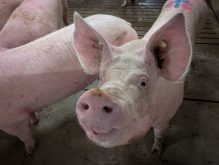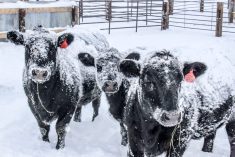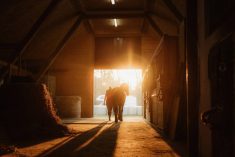R-CALF USA, a legal-action group of northern-state ranchers and cattlemen, has asked a U.S. district court for an injunction to block the U.S. Department of Agriculture’s new rule allowing imports of older Canadian cattle before the rule can take effect.
The group, along with 10 other plaintiffs, filed a complaint against the so-called “Rule 2” or “OTM rule” in the same South Dakota court early last week. However, it announced Friday that it has moved to ask for a preliminary injunction against the rule in the meantime.
Read Also
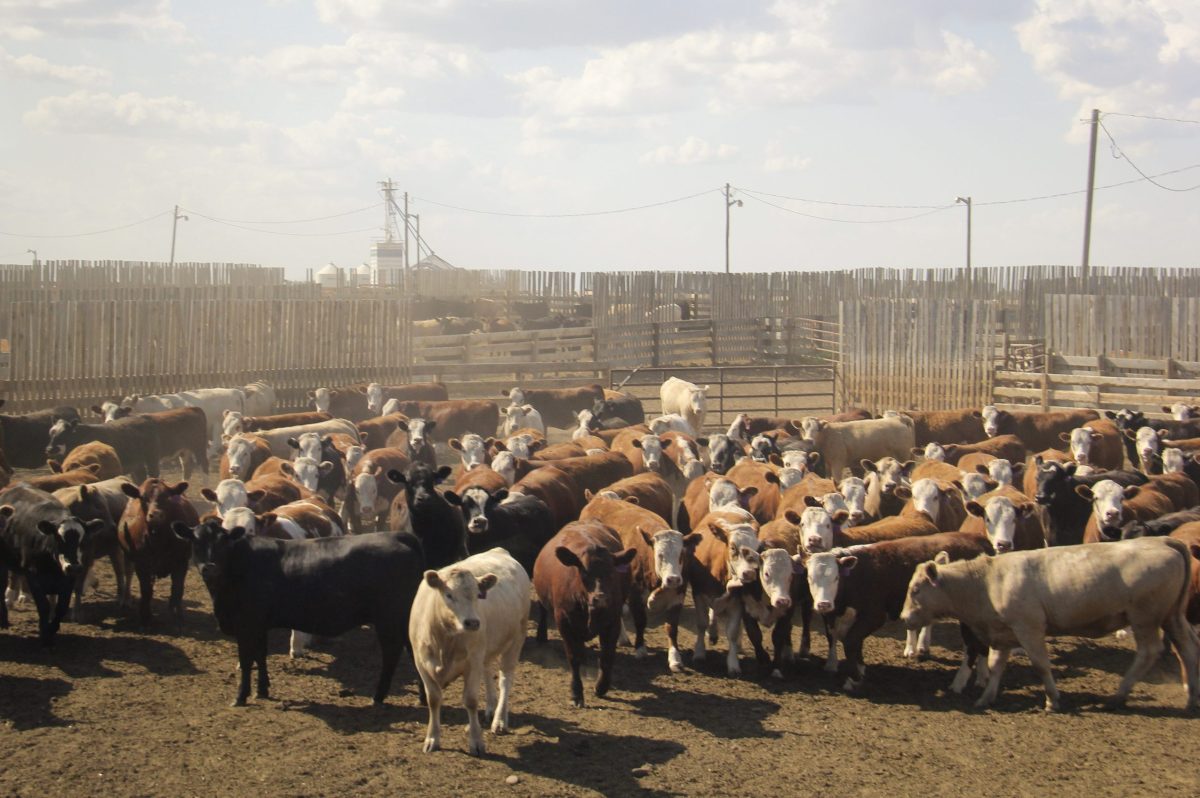
U.S. livestock: Cattle futures gain, hogs fall back
Chicago cattle futures made gains on Wednesday while hogs fell back. Most-active April live cattle closed at 238.725 cents a…
R-CALF and its co-plaintiffs “seek to enjoin (Rule 2) until the lawfulness of the OTM rule can be reviewed in full by this court,” the group said in its motion, filed Nov. 1 and posted on the group’s web site.
The group’s lawyers also asked the court to grant the opportunity for oral argument on its motion, as long as a hearing on those arguments can be held and a decision made on the proposed injunction before Rule 2 takes effect Nov. 19.
The district court has not yet ruled on R-CALF’s latest motion.
USDA’s Rule 2 allows imports of live Canadian cattle born after March 1, 1999. The rule is also called the OTM rule for allowing cattle over 30 months (OTM) of age. OTMs have been blocked from entering the U.S. since Canada discovered the first of what’s now 10 cases of mad cow disease (BSE) in the domestic herd in May 2003. (An 11th case, discovered in Washington state in late 2003, was traced to a Canadian herd.)
Cattle under age 30 months (UTMs) have been admitted to the U.S. since July 2005.
Rule 2 would also admit beef from Canadian cattle of any age, as long as they were subject to Canada’s ban on feeding of ruminant tissue to other ruminants and have had their SRMs (specified risk materials, the tissues known to harbor the proteins that cause BSE) removed at slaughter.
“The OTM rule creates an unjustified and unnecessary increased risk of infection of the U.S. cattle herd with BSE, and of importing beef contaminated with BSE into the U.S., which will expose U.S. consumers to increased risk of a fatal disease,” said R-CALF CEO Bill Bullard in a release Oct. 29.
R-CALF USA (short for Ranchers-Cattlemen Action Legal Fund, United Stockgrowers of America) has operated since 1998, stemming from an ultimately unsuccessful anti-dumping trade action against imports of Canadian cattle. It has since lobbied on issues including country-of-origin labeling (COOL), animal identification and the national beef checkoff.
The group’s co-plaintiffs in its latest Rule 2 case include several South Dakota cattlemen along with U.S. groups such as the South Dakota Stockgrowers Association, the Center for Food Safety, the Creutzfeldt-Jakob Disease Foundation, Food and Water Watch, Public Citizen and the Consumer Federation of America.
Separately, U.S. politicians launched “resolutions of disapproval” early last month in both the U.S. Senate and House of Representatives, in what’s seen as a long-shot measure to block Rule 2 by legislative means.


